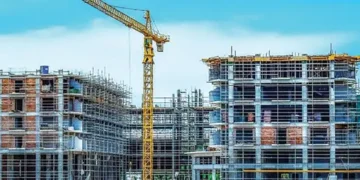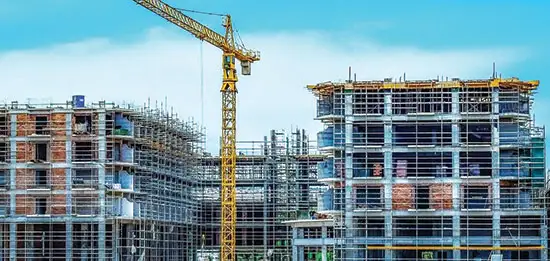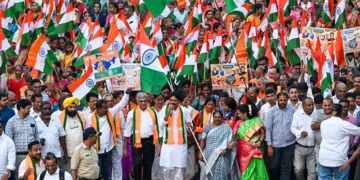Blitz Bureau
NEW DELHI: IN a major relief to thousands of homeowners across DLF Phases 1 to 5 in Gurugram, the Supreme Court has set aside an order of the Punjab and Haryana High Court that had directed the demolition of unauthorised constructions and sealing of commercial establishments in residential zones.
A Bench of Justices JK Maheshwari and Vijay Bishnoi, while restoring the writ petitions before the Punjab and Haryana High Court, ruled that no adverse action can be taken without hearing the affected parties. The Bench held that “opportunity of hearing is a sine qua non for fair administration of justice”, adding that the impugned order had been passed “without joining the appellants as parties in the writ petition.”
The apex court said that the HC’s directions —ordering the closure of 172 pending civil suits and mandating demolitions within two months—had serious implications for property owners who were neither heard nor impleaded as parties. The decision came on a batch of special leave petitions (SLPs) filed by Gurugram residents challenging the Punjab and Haryana High Court’s February 13 order in a public interest litigation (PIL) filed by the DLF City Resident Welfare Association (RWA) in 2021.
The SLPs argued that the HC’s directions were passed “without affording opportunity of hearing” and in disregard of ongoing civil proceedings concerning ownership and legality of the constructions.
The top c0urt, while acknowledging that illegal constructions cannot be protected, observed that any illegality must be dealt with in accordance with due process of law. “Unauthorised or illegal construction, commercial use of residential property, contrary to the norms, rules and regulations, cannot be protected. But the determination of such a fact ought to be made by the authorities affording due opportunity to the owners and occupiers,” observed the Bench. “It goes without saying that the opportunity of hearing is a sine qua non for fair administration of justice, and the observations of the court should not adjudicate the rights of any parties unheard,” the order said.
The SC also asked the Haryana Government to give “wide publicity” to its order so that all affected residents could approach the Punjab and Haryana High Court. It further asked the High Court to decide the petitions at the earliest, as far as possible, within six months after affording opportunity to all concerned.
































